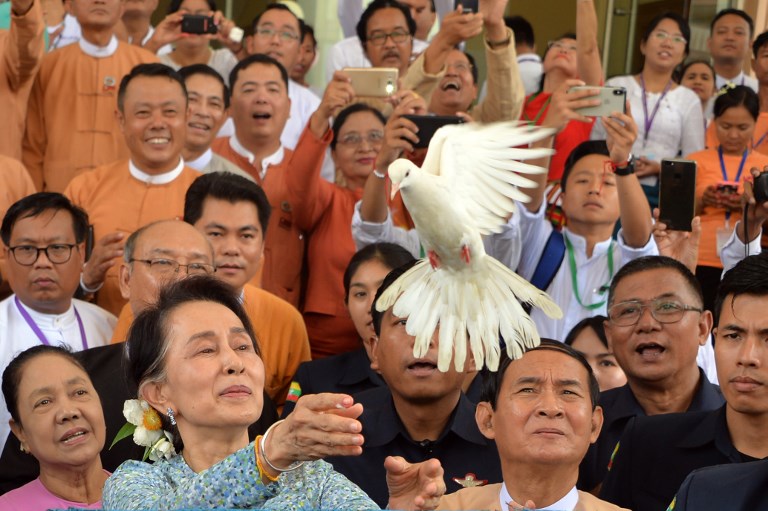After a delayed start to the third round of the 21st Century Panglong Conference, also known as the 3rd Union Peace Conference (UPC), the conference will be held from July 11-16 in Naypyidaw. The NLD-led government invited 17 ethnic armed organizations, including 10 ethnic armed groups that are signatories of the National Ceasefire Agreement (NCA), alongside seven others that haven’t signed, to attend the conference.
The 3rd UPC aims to unite all ethnic nationalities to build a democratic, federal union through dialogue. The six-day conference is organized to discuss federalism, minority rights, democratic human rights, and gender equality.
However, key political concerns have been excluded from the agenda of the UPC, raising concerns about whether the conference is sincere in its goals.
Among these concerns is the fact that the Tatmadaw has barred questions of self-determination and equality from the discussion. Moreover, the military also wants ethnic groups to promise to never seek secession. In turn, the ethnic groups fear this concession will make them vulnerable to further rights abuses by the Tatmadaw.
The renewed effort by the NLD-led government to resolve issues from decades of ethnic strife and civil war is entering its third year with a mixed bag of success. While 10 armed groups have signed onto the NCA, the Tatmadaw has clashed with key signatories several since the 1st UPC in 2015.
In recent months, the Tatmadaw has fought battles with the Karen National Liberation Army (KNLA), the armed wing of signatory Karen National Union (KNU), often after Tatmadaw trespasses into rebel-held territory.
On July 10, leaders of seven ethnic armed groups based along Myanmar’s northern border, representing the Federal Political Negotiation and Consultative Committee (FPNCC), met with State Counselor Aung San Suu Kyi and Commander-in-Chief Senior-General Min Aung Hlaing.
On the same day, the Tatmadaw attacked a base held by the Restoration Council of Shan State (RCSS), an NCA member, in Shan State’s Mong Kung Township, after warning the ethnic armed group to retreat.
Tensions between the Tatmadaw and the RCSS have been high. In addition to both being members of the NCA, they have also signed a bilateral agreement to establish a border between their areas of control. Nonetheless, no action has been taken to delineate the border.
Myanmar’s peace process is at a major crossroads: how the Tatmadaw and RCSS will resolve their current impasse will be instructive for all parties at the UPC, and the prospects for peace in the 21st century.





Reader Interactions